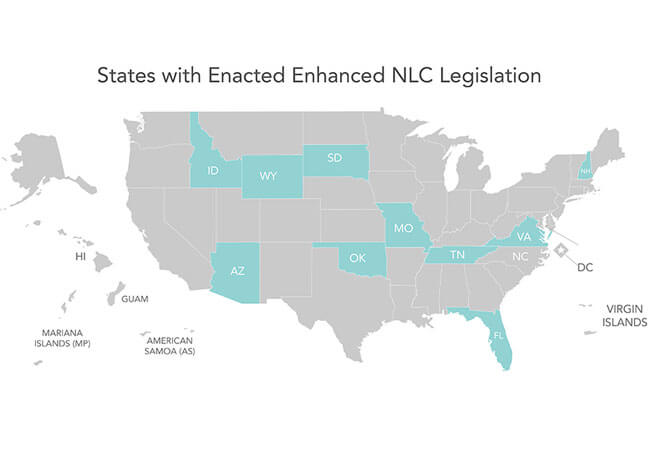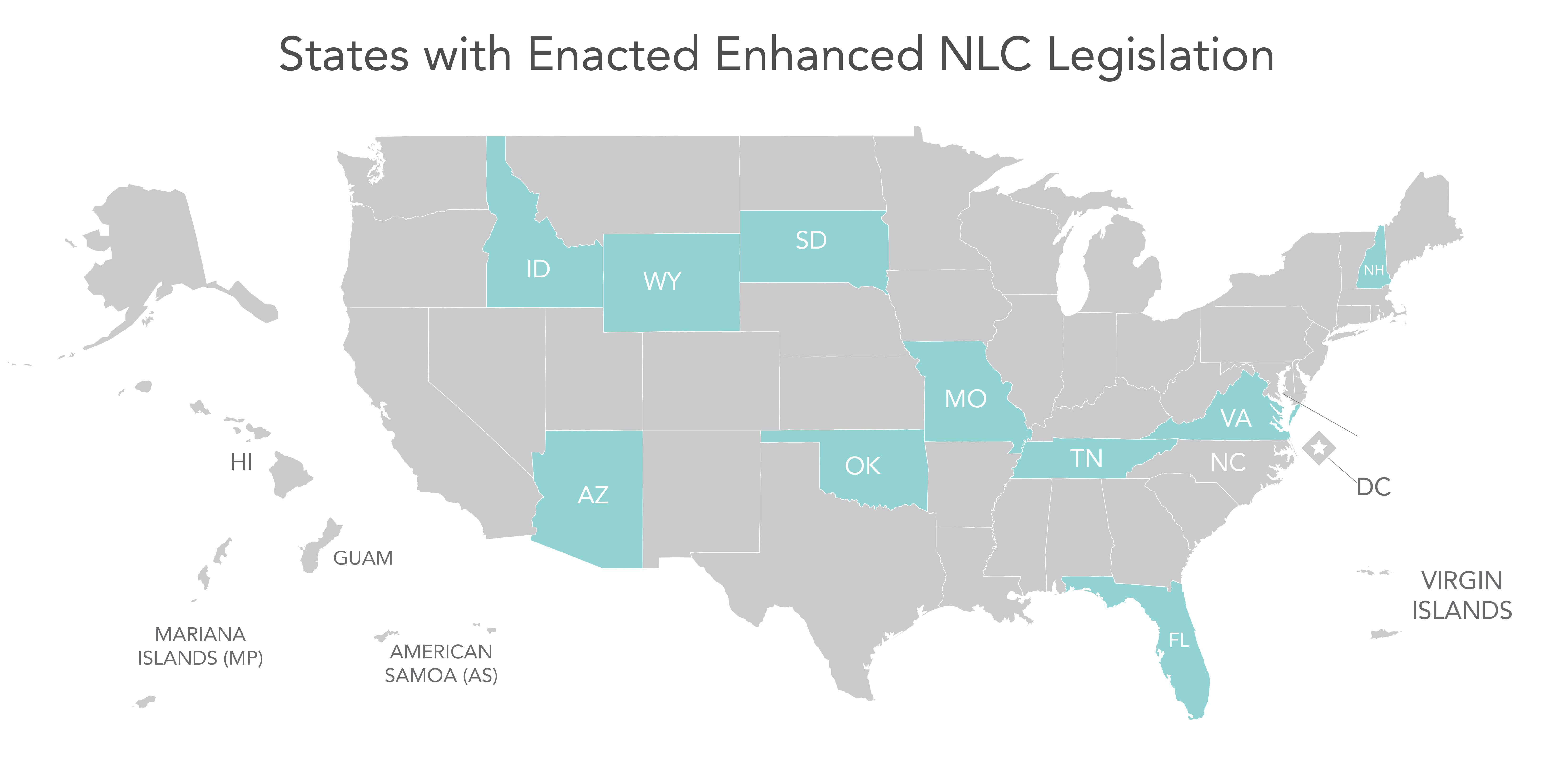
Nov 17, 2016
Good Health Knows No Boundaries (or Shouldn’t)
Just as a driver’s license allows people to cruise state to state without having to pass other driving tests, the nursing profession has long had the Nurse Licensure Compact. However, that agreement among 25 states to let nurses use a multistate license to provide care across state borders has limitations: if nurses are not in one of those 25 states that are part of the compact agreement, neither they nor consumers in that state benefit.
Taking on that challenge is the National Council of State Boards of Nursing (NCSBN), which since last year has promoted its newly adopted enhanced Nurse Licensure Compact (eNLC).
With people on the move more than ever, and technology changing every aspect of daily life, agreements among states make sense—health care has to keep up with the people it’s meant to serve. Like the current Nurse Licensure Compact, the enhanced NLC allows nurses to practice in the state in which they are licensed, as well as across state lines in other compact states.
The eNLC updates the original compact from 2001 with requirements for nurses who want a multistate license to submit to a federal criminal background check; they also need to have a social security number, have graduated from an approved education program, and have passed the NCLEX.
The multistate compact benefits the public and nurses:
- Telehealth provides consumers greater access to health care, because nurses with multistate licenses can offer services over the phone, online, and in person across state lines. A patient with a chronic condition living in a rural part of a state, for example, can receive care from more providers across the states without the need to drive for hours each time.
- The compact helps disaster victims by allowing nurses from around the country to cross state borders after disaster strikes, offering critical services such as kidney dialysis.
Nurses benefit, too.
- Military families move often, and may include a spouse who is a nurse. Compacts allow these nurses to continue practicing without obtaining a new nursing license if they move to states that are part of the compact.
- Multistate licenses allow nurses to tap into distance education, Educators can reach students across the country who are interested in the nursing profession, giving nursing students more choice in where they attend school.
For now the nation, and NCSBN, are caught between the two versions of the compact. Nurses in the existing compact among 25 states can continue using the multistate license in those states. The eNLC will come into effect once 26 states enact it, or on December 31, 2018, whichever comes first. So far, 10 states have enacted the legislation; the NCSBN anticipates many more will follow in 2017.
States that have enacted the eNLC are Arizona, Florida, Idaho, Missouri, New Hampshire, Oklahoma, South Dakota, Tennessee, Virginia, and Wyoming. (Florida, Oklahoma, and Wyoming are not among the 25 states in the current compact, so nurses and consumers in those three states must bide their time until the eNLC takes effect.)
In “Unlocking Access to Nursing Care Across the Nation,” the NCSBN supplies the history and advantages of the new multistate compact, and additional information, including the fact that 70 percent of nurses surveyed in 2014 supported their states’ joining the compact.

